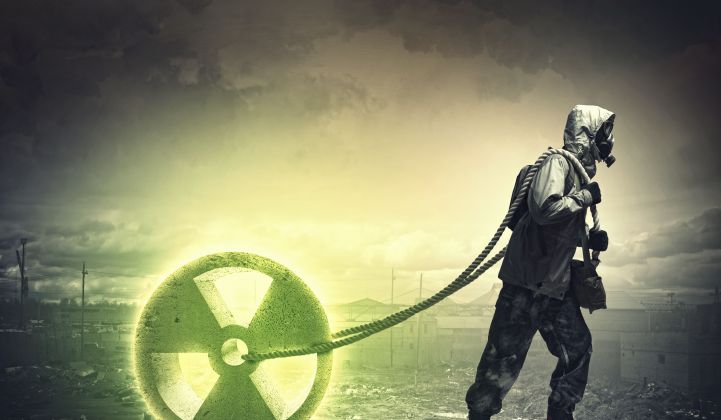The engineers and entrepreneurs at NuScale just want to build small modular reactors (SMRs).
Designing, building and going through the regulatory hurdles of a new nuclear design is hard enough without the drama and distraction of SEC investigations of your lead investor shutting down your company and other investors interfering with the restart of your company.
That's what NuScale lived through in 2011 but now there seems to be a light at the end of the tunnel.
Earlier this year, the Securities Exchange Commission filed an action against NuScale's lead investor, The Michael Kenwood Group. The firm "misappropriated at least $53 million in investor funds and used the money for self-dealing transactions," according to an SEC document. The SEC action did not allege any wrongdoing on the part of the nuclear firm, but the loss of its lead investor forced NuScale into dormancy.
But now Fluor (FLR) has come to the rescue of NuScale and looks to announce that it has purchased a majority stake in the Corvallis, Ore.-based firm for $3.5 million, according to the Wall Street Journal. Fluor is an enormous EPC with a $9.1 billion market cap that competes with the likes of Bechtel.
A few early investors did try to block the sale but have since retreated from that stance, so now NuScale can hire back some of its 100 employees and start to get back to work.
Under the SMR concept, reactors can be built in factories and shipped to the site instead of being built -- expensively and riskily -- on-site. Rather than engineer and build reactors capable of producing over one gigawatt of electric power, SMRs can produce 10 megawatts to 350 megawatts of electricity (or heat). SMRs operate in similar fashion to conventional reactors or fossil fuel plants; nuclear fuel builds heat, which creates steam, which in turn is used to spin a turbine.
It is anticipated that SMRs will cost about the same to construct per kilowatt as large nuclear plants and will produce electricity at the same cost as a conventional nuclear plant (that is, in the 6 cents to 8 cents per kWh range). SMRs are not new. The U.S. Army has built and operated small nuclear power plants in the past and the military uses small reactors to power naval vessels. But the incremental construction scheme of SMRs can change the financial and safety picture.
NuScale was founded in 2007 from research conducted at Oregon State and had raised $35 million in VC funds.
One of the distinctions of the NuScale design is that it employs passive cooling, making the design safer and less complex with no pumps and no back-up pumps. The technology used by NuScale is proven, and in many cases, borrows from existing LWR designs. This is crucial, as it allows the NRC to stay well within their comfort zone.
Maurice Gunderson, a partner in a CMEA venture fund, said in an email: "Today marks the beginning of a new electric power era in America. NuScale Power will bring us affordable and financeable power with carbon-free generation and levels of safety that set new international standards. Fluor Corporation is one of the most respected and capable engineering and construction firms in the world. Together, NuScale and Fluor form a partnership like no other. I am extremely proud to have led the first investment in NuScale, and I am excited to be part of this development of American future energy technology."
Gunderson has labeled the small modular reactors designed by NuScale as one of the "game-changing" technologies in energy (along with utility-scale energy storage and fusion).
Fluor is a good fit for NuScale. Fluor built a score of large reactors in the 1970s and 1980s and the firm has ample cash supplies. Fluor is buying the stake formerly held by Kenwood.
There are a few nuclear technology startups out there, such as Kurion, TerraPower, Hyperion, General Fusion, and Tri-Alpha. Kurion, a startup incubated by Lux Capital that says it can cost-effectively fix nuclear waste in glass, has actually proven what it can do at the Japanese nuclear disaster site.
We have reported on NuScale and SMRs numerous times, and we've covered the strong case that SMRs have made in their own favor.
About 20 percent of U.S. electricity comes from nuclear sources. Perhaps the return of NuScale, along with other SMR vendors like Babcock and Wilcox, can help the industry address some of nuclear's historic financial and marketing impediments.



